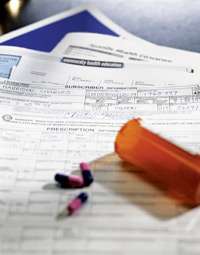Your Safety and Security
Safety Procedures

To protect your personal well-being while providing you with the best medical care possible, UCLA has implemented key safety procedures and practices to reduce the possibility of medical errors. There are some common risks that are inherent in all hospitals. Please review these simple tips to avoid or minimize those risks:
ID bracelet
Once you are admitted, you will be given an identification band with your name and a UCLA Health medical record number on it. For your safety, do not remove the band until you are discharged from the hospital.
Recognize your medication
UCLA nurses follow a careful procedure to ensure that the medications they give to patients are the correct ones. If the medications you receive do not look familiar, alert your doctor or nurse. The medications are likely correct, but it's always a good idea to double-check.
Change in condition
We take your concerns seriously regarding the way you are feeling. If you or a family member thinks there has been a change in your condition, please tell a member of the healthcare team (care partner, nurse, physician, et al.) immediately. You can feel confident that any concern you express will be addressed.
Smoking
For everyone's health, safety and comfort, UCLA has implemented a smoke-free environment throughout the indoor and outdoor areas of our hospitals and campus. Smoking cessation educational materials are available from your nurse.
Fall prevention
Good communication among patients, visitors and nursing staff is key to preventing falls. Visitors can help prevent falls by staying alert to the needs and capabilities of the person they are visiting and notifying a nurse with any concerns. Patients should use the call light to request assistance getting out of bed, and they should wear non-skid footwear when mobile. Patients at high risk of falling need to have a care partner or nurse with them during all bathroom activities.
Cleanliness
UCLA Health policy mandates that every care provider, including doctors, nurses and other staff, wash their hands before and after performing any "hands on" procedures with patients. Overwhelming evidence shows that washing hands is the single most important precaution that anyone (including your doctor or nurse) can take to effectively prevent the spread of infection. If you notice that any members of your healthcare team have forgotten to wash their hands, remind them - it is for everyone's benefit.
Pain control
Because pain may be a sign of a problem, it is important to let your medical team know about your pain. You should never worry about "bothering your nurse or doctor." Actually, they want and need to know about your level of pain to provide better care.
Your medical team may ask you to rate your pain on a scale from "0 to 10," or you may choose a "face" on a scale that best depicts your pain. Reporting your pain as a number or illustration helps your healthcare providers know how well your treatment is working and whether to make any changes. If you do not feel as though your pain is being controlled, you should let your nurse know immediately.
Other important points

- Make sure that you know the physician in charge of your care
This is particularly important when many people are involved in your
treatment, or when you have multiple health issues. - Make sure your healthcare professionals know who you are
All physicians, nurses or other staff members should check your identification bracelet before examination and treatment. - Speak up if you have questions or concerns
You have the right to know about your care and to ask questions of any member of your care team. - If you have a test taken, don't assume that no news is good news
Always ask your doctor for the results. - When surgery is involved, be informed
Make sure that you, your doctor and your surgeon all agree on what exactly needs to be done. - Get an advocate
Ask a family member or trusted friend to serve as your advocate to protect your best interests, especially when you may be distracted by the stress of illness.
If something about your care or environment seems unsafe or you identify something that can be improved, contact Office of the Patient Experience at the following phone numbers:
- UCLA Santa Monica Medical Center (424) 259-9120
- For Security issues, call (424) 259-9100